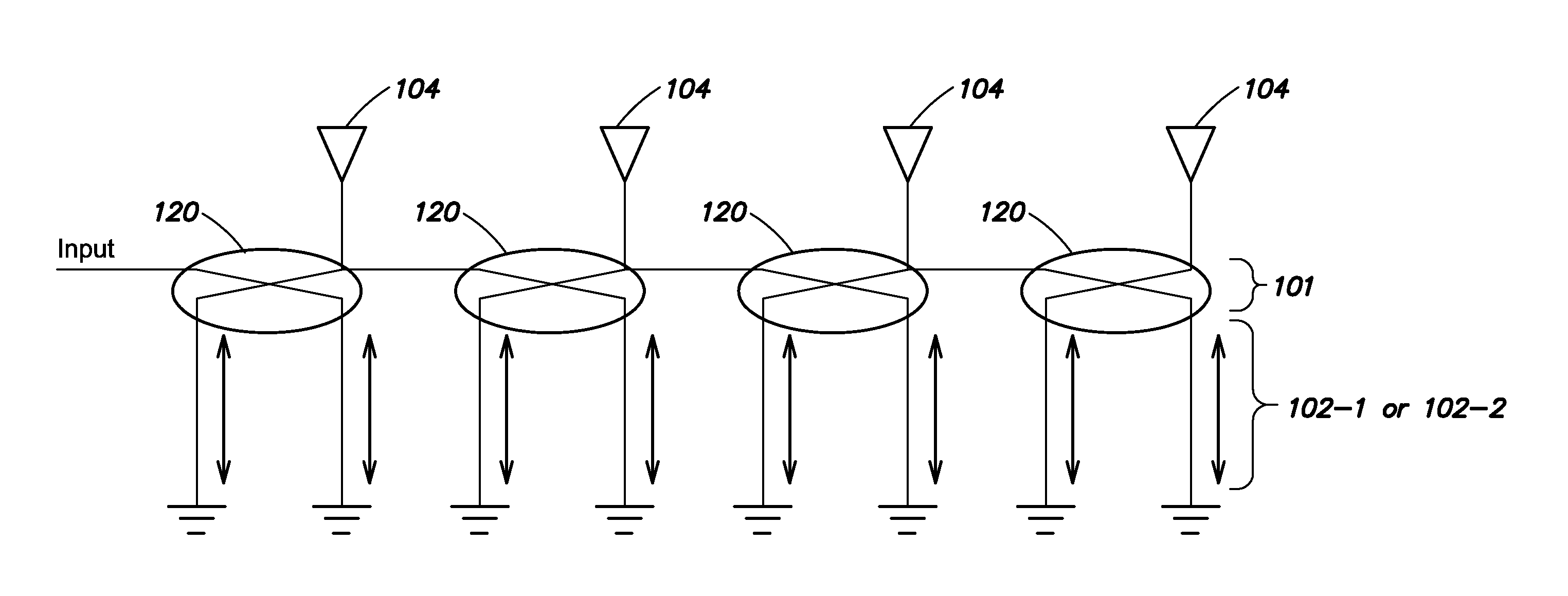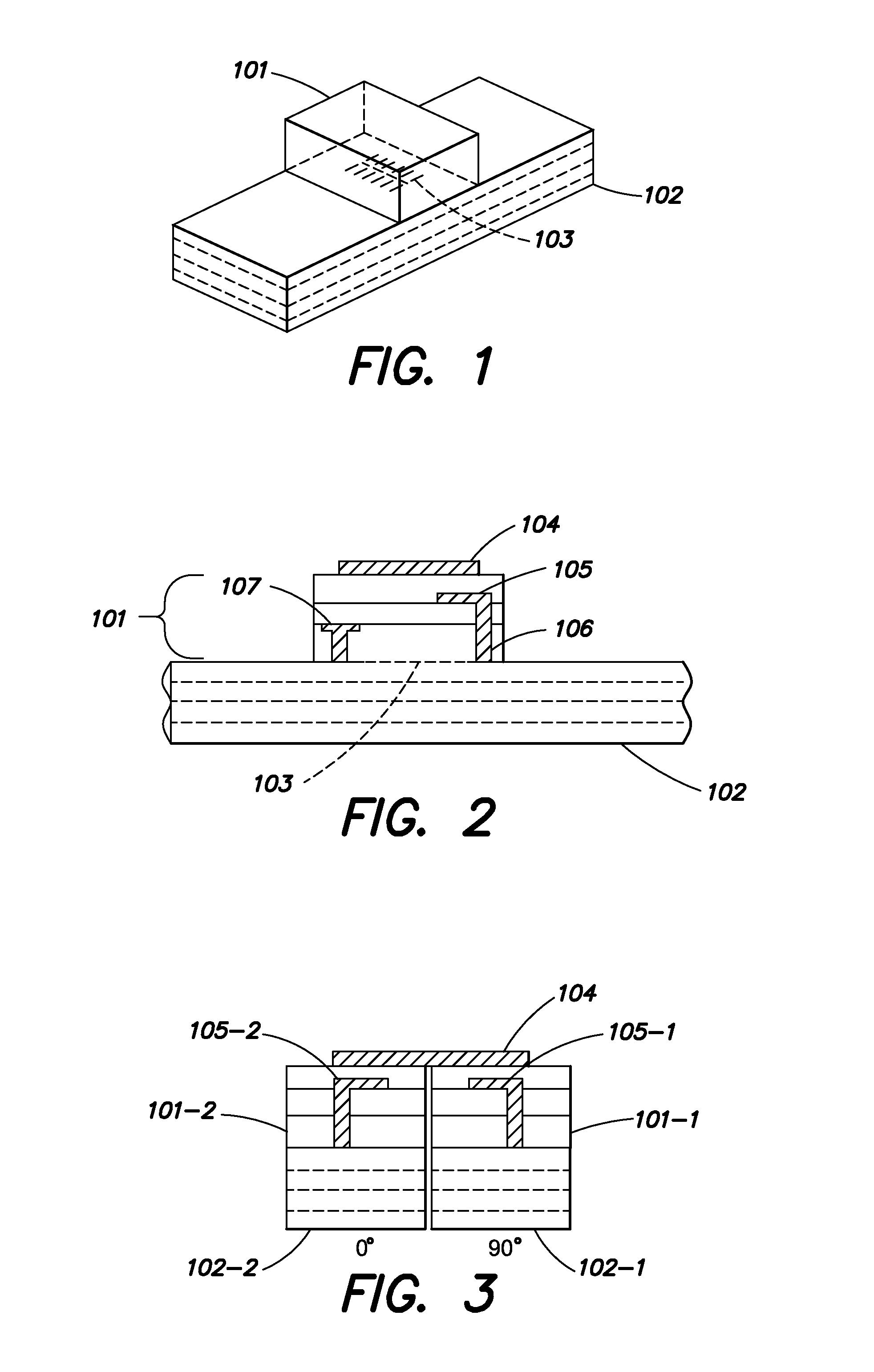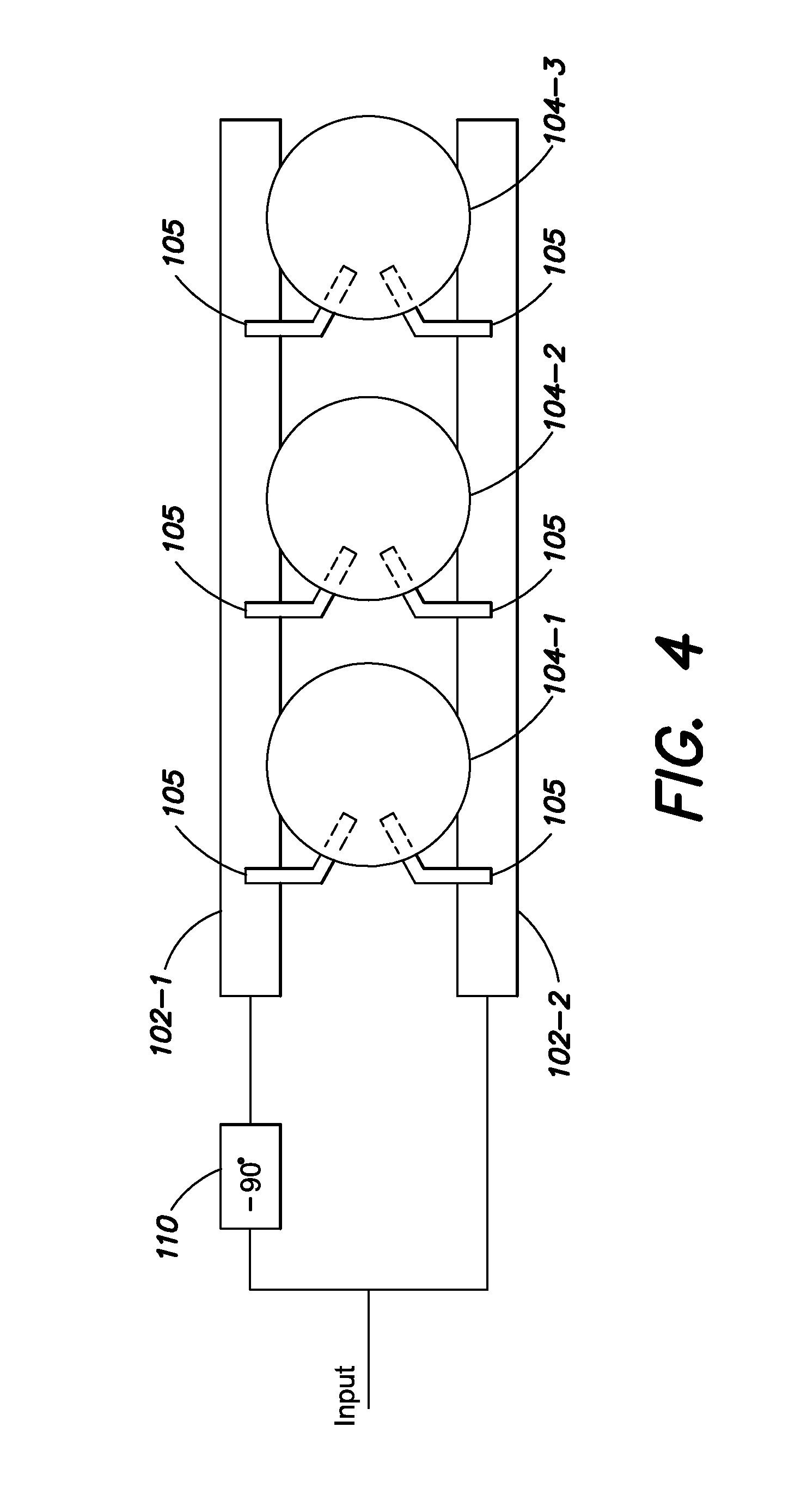Travelling wave antenna feed structures
a technology of phased array antennas and feed structures, applied in the direction of leaky waveguide antennas, non-resonant long antennas, antennas, etc., can solve the problems of accumulating delay, bandwidth constraints, normal undesirable, etc., and achieve the effect of accurate phasing of each element and keeping the standing wave ratio (swr) relatively low
- Summary
- Abstract
- Description
- Claims
- Application Information
AI Technical Summary
Benefits of technology
Problems solved by technology
Method used
Image
Examples
Embodiment Construction
[0040]1. Introduction
[0041]In a microwave phased array antenna, it is desirable to simplify the design and manufacture of the power dividing phase network. In such components, individual phase controlling elements are placed between each radiating element in series. In this series fed configuration, a transmission line (which may be a waveguide or any other Transverse Electromagnetic Mode (TEM) line) contains all of the antenna element tap points which control power division and sidelobe levels, as well as the phase shifters which control the scan angle of the array. This arrangement provides a savings in the needed electronic circuitry as compared to a parallel feed structure which would typically require many more two-way power dividers to implement the same function.
[0042]By way of introduction, this simplification can be provided by performing the phase shift function by varying the wave propagation velocity of the transmission line, thereby inducing a change in electrical lengt...
PUM
 Login to View More
Login to View More Abstract
Description
Claims
Application Information
 Login to View More
Login to View More - R&D
- Intellectual Property
- Life Sciences
- Materials
- Tech Scout
- Unparalleled Data Quality
- Higher Quality Content
- 60% Fewer Hallucinations
Browse by: Latest US Patents, China's latest patents, Technical Efficacy Thesaurus, Application Domain, Technology Topic, Popular Technical Reports.
© 2025 PatSnap. All rights reserved.Legal|Privacy policy|Modern Slavery Act Transparency Statement|Sitemap|About US| Contact US: help@patsnap.com



